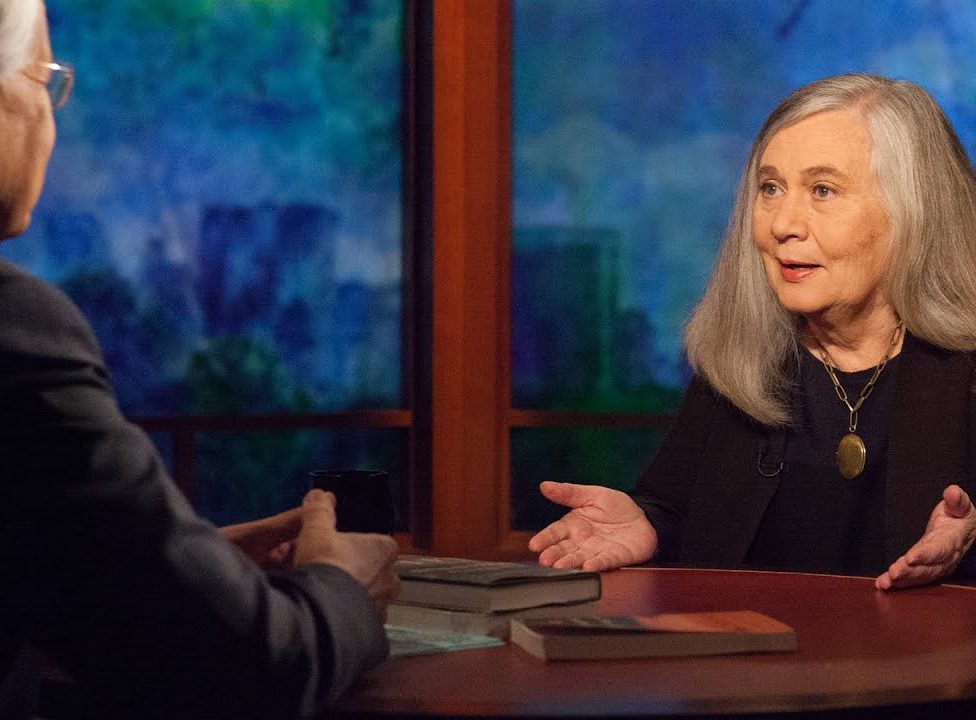Absence of Mind: Book Review

Marilynne Robinson, Absence of Mind, New Haven and London: Yale University Press, 2010.
If you’re reading Robinson’s essays, you probably have already read her novels. You may well approach the essays as I did, with an established admiration for an inventor of fictional lives. Robinson tells us of people who may well seem unremarkable, “ordinary” at some level, easy to overlook — but who live with integrity, intelligence, sensitivity and self-respect in enormously challenging circumstances. They elicit a reader’s awe of individuals’ capacities for many things, perhaps above all for love.
In this collection of essays, however, Robinson is not telling us a story. She is trying to persuade us. It is as if she stepped back from her own empathy with and admiration for minds completely different from her own long enough to warn us of the enemy of such belief in human possibility.
It’s a formidable enemy. My own sense of this book’s core achievement is exactly the recognition of a specific feature — an absence — in modern thought, and the courage and clarity to grasp it as an enemy. For until we can step outside the force field of ideas in which we live, we can’t do much to resist them. Robinson’s argument tends to be subtle rather than explicit. But there is no mistaking the tendency for modern thought to build huge, comprehensive systems, invariably overlooking and diminishing the possibilities of the individual human mind. The long-term effect on us is not explicit or even necessarily coherent. Rather we get a vague sense of our own limitations or helplessness, the inadequacy of our unique selves. Facing the huge, luminous sources of modern thought, works as famous as those of Russell, Marx, and Freud, Robinson calmly, carefully points out that as impressive as each may be in its own right, they not only conflict with one another, but worse, consistently ignore or discredit capacities and achievements that might be called, broadly, aesthetic: art, music, literature, religious conviction.
At one point Robinson adopts the voice of a reader hoping to find some coherence among a few of features said by various schools of modern thought to characterise human beings. It’s laughable:
We have been optimized by competition and environment, we are shaped by economic forces and means of production, we are inheritors of a primal guilt, we are molded by experiences of frustration and reinforcement. These are all assertions that have shaped modern thought. But they are not to be reconciled with one another. The Freudian neurasthenic is not the Darwinian primate, who is not the Marxist proletarian, who is not the behaviorists’ organism available to being molded by a regime of positive and negative sensory experience. To acknowledge an element of truth in each of these models is to reject the claims of descriptive sufficiency made by all of them. What they do have in common…is an exclusion of the testimonies of culture and history.
What is art? It is a means of attracting mates, even though artists may have felt that is was an exploration of the experience, of the possibilities of communication and of the extraordinary collaboration of eye and hand. The old conquerors may have meant to fling themselves against the barricades of fate and mortality, but in fact, through all the misery and disruption, they were really just trying to attract mates. The Freudian self is necessarily frustrated in its desires, and therefore it generates art and culture as a sort of ectoplasm, a sublimation of forbidden impulses. So, it would seem, the first thing to know about art, whatever the account of its motives and origins, is that its maker is self-deceived. Leonardo and Rembrandt may have thought they were competent inquirers in their own right, but we moderns know better. (xvii)
In the last essay in the collection, “The Freudian Self,” Robinson seemed to me to reappear, displaying the empathy, sensitivity, perceptual acuity we learned to admire in her fiction. Almost in passing, she reminds us that even the greatest of modernist thinkers were and are human beings with minds and bodies that exist in a specific place and time, absorbing the culture and history of that specific place and time, and developing a particular sense of their own possibilities and limitations. Then, starting with some remarkable memories of Freud written by his illustrious student and early confidant C. G. Jung, Robinson develops a complex figure, a gifted, educated Jew growing up in a climate of increasingly intense antisemitic feeling. Horrified at the very idea of being involved in such a conflict, he built and defended an explanation of human personality so firmly grounded in sex as to rule cultural (religious, among others) influences irrelevant.
Robinson’s argument is varied, complex. The topic is very broad, and sometimes a reader needs to “shift gears” quickly, to willingly let her habitual understandings go, at least temporarily, in the interests of perceiving larger patterns. It’s worth every step, at least for those of us who long struggled to even understand the meaning of the term “aesthetic” and who, once we did, began to grasp exactly that kind of experience as fundamentally human.


